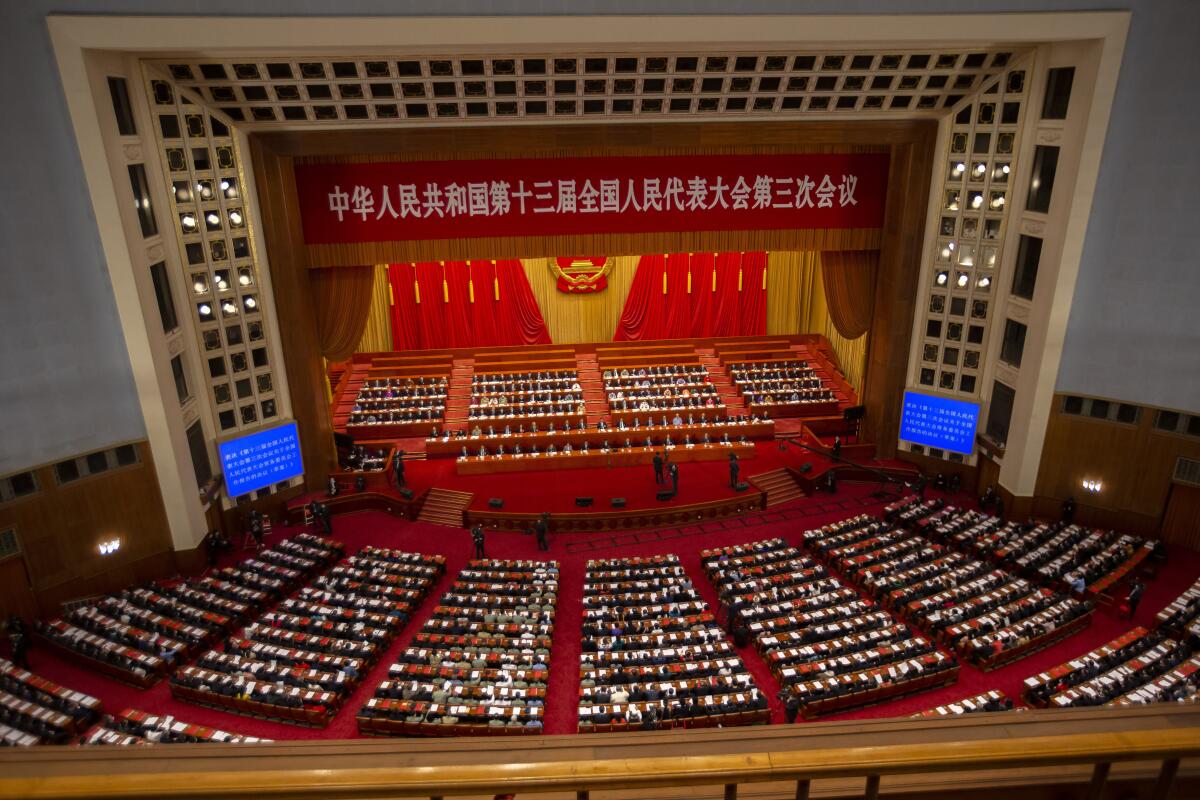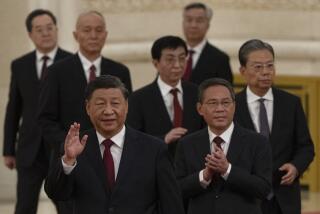China’s legislature to meet amid backdrop of slowing economy, war in Ukraine

- Share via
BEIJING — China’s 3,000-member ceremonial parliament will open its annual session Saturday with the government facing a slowing economy and international pressure over its refusal to condemn Russia’s invasion of Ukraine.
Although domestic issues typically dominate the National People’s Congress, the war in Ukraine is highlighting the ideological confrontation between the American-led West and the competing worldview of Beijing and Moscow.
Any discussion of the conflict is expected to be muted, however, with the focus on boosting growth in the world’s second-largest economy.
The delegates do little lawmaking — that’s handled by the 176-member Standing Committee, which meets year-round. The vast majority of delegates, around 73% of whom are members of the ruling Communist Party, have separate careers and little background in parliamentary procedure or writing legislation.
Rather, the party uses the Congress to announce broad goals for the economy and other issues including the environment and military spending, while receiving feedback from delegates on concerns among the grass roots. This year, it comes ahead of a key party meeting in November during which leader Xi Jinping is expected to be granted a third five-year term.
This year’s Congress was again cut to one week from the usual two because of the pandemic. Only a few big gatherings are scheduled and news conferences will be held via video link.
Analysts will focus on an annual report delivered at Saturday’s opening session by Premier Li Keqiang, the No. 2 leader and top economic official. He is expected to announce an annual growth target of as low as 5%, down from last year’s 8%.
The report will likely review China’s COVID-19 response and may have hints about the future direction of virus control. While China has largely contained the outbreak, questions have increasingly been raised about the economic costs and long-term sustainability of its “zero-tolerance” approach.
At a news conference Friday, Congress spokesperson Zhang Yesui indicated China defended the policy as providing the “maximum results at as little cost as possible.”
“This approach can ensure that, in most regions and for most people, their lives and the economy can go on in a normal way,” Zhang said.
Most of the remainder of the weeklong session will be taken up by closed-door discussions among the delegates, drawn from all of China’s provinces and regions, as well as the party’s powerful military, the People’s Liberation Army.
The plight of trafficked women is expected to be discussed following a recent widely publicized case of a woman found chained inside a shed in eastern China.
More to Read
Sign up for Essential California
The most important California stories and recommendations in your inbox every morning.
You may occasionally receive promotional content from the Los Angeles Times.










